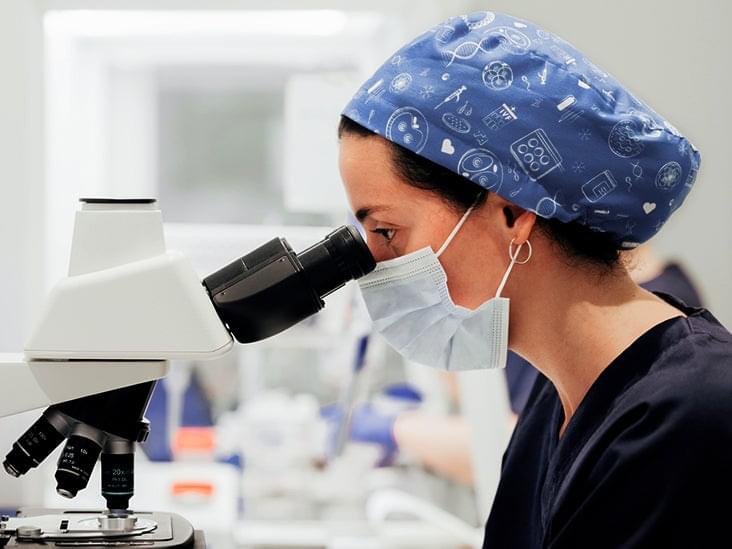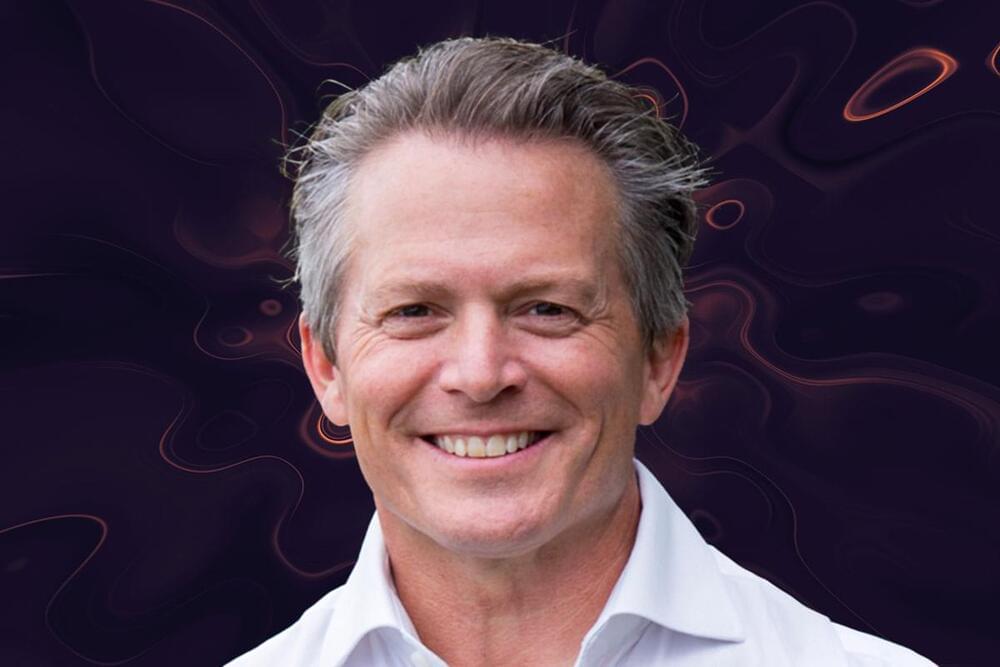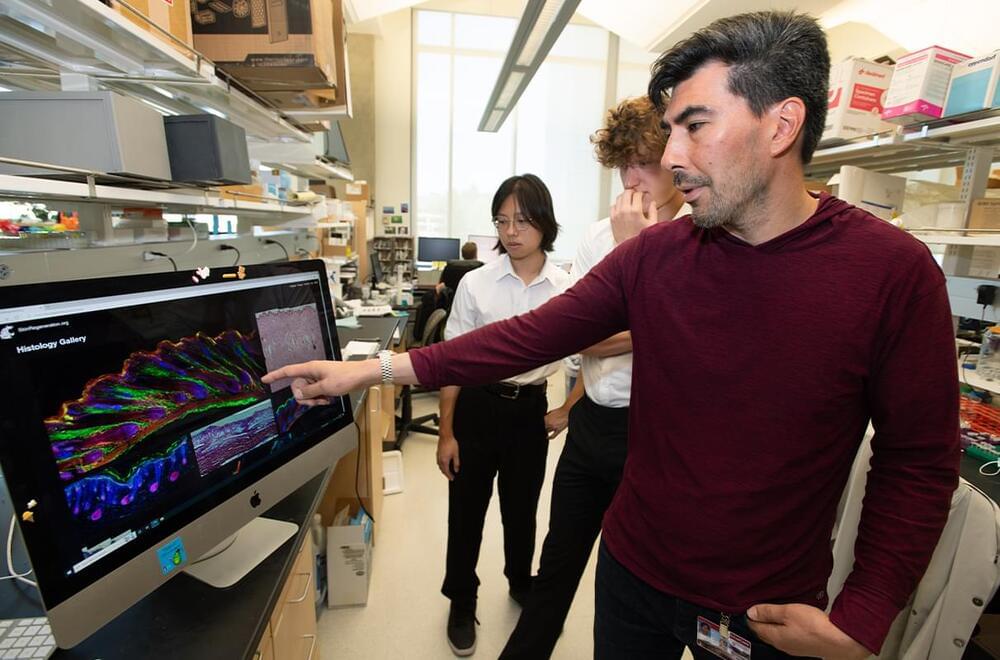Researchers say they have linked shorter telomeres on white blood cells to higher dementia risk, although outside experts say there are limitations to this study.



Driving Forces Behind the Growth in UAE’s Life Sciences Industry: the latest from the Life Sciences Division of Deep Knowledge Group created by Deep Knowledge Group, Aging Analytics Agency, Deep Pharma Intelligence, NeuroTech.com, FemTech Analytics, and Deep Knowledge Analytics:
Population Aging: With the world’s population getting older, the demand for medical services is soaring. The UAE is no exception, and this demographic shift is a key driver of growth in the life sciences sector.
New Machines and Drugs: Constant innovation is driving the development of new treatments and drugs to address previously unmet health needs. This not only enhances patient care but also sparks technological… More.
The inaugural Global NeuroTech Industry Landscape Overview 2020 report from Neurotech Analytics maps the market with their analysis to identify the top tech, trends, investors, R&D, sectors, big guns, startups, opportunities, risks, predictions, as well as social and ethical implications of NeuroTech in the global industry.

US biotech Immunis has developed an “immunomodulatory secretome” technology targeting age-related immune decline. With preclinical studies showing benefit in muscular atrophy, metabolic and vascular function, tissue inflammation, and immune cell function in a range of age-related disease indications, the Californian company is currently engaged in its first in-human clinical trial for muscle atrophy.
Longevity. Technology: The secretome refers to the substances that are secreted (released) by cells – exosomes, micro-vesicles, proteins, growth factors, hormones, cytokines, and other substances. The secretome is known to play a role in helping repair and regenerate our bodies, but these beneficial secreted factors decline with age. Immunis has developed a novel method to isolate secreted cellular factors that benefit immune system development, modulation, and health – and replenish them. To find out more about the company and its technology, we spoke to its Chairman, Dr Hans Keirstead.
Keirstead is a renowned stem cell expert and serial entrepreneur, founding and successfully exiting several biotech companies in the stem cell space. Back in the early days of the field, he became the first neuroscientist in the world to work with human stem cells.
Here’s a quick look at Maria Entraigues Abramson’s presentation at RAADfest 2023 in California. Our Director of Develpoment gives an overview of SRF’s work and misison. You can watch the full presentation by renting the video program for the full event from the Coalition for Radical Life Extension here: https://vimeo.com/ondemand/raadfest2023/
In her full presentation, she highlights that adopting a better lifestyle to enhance our health is always a good idea and we should all do this. She personally advocates for everyone to utilize all scientifically supported resources to achieve optimized health. However, she reminds the audience that the mission of SRF is not about lifestyle changes but to transform the aging process completely, aiming to significantly extend our healthspan by repairing our bodies at a cellular level. SRF’s damage-repair approach will lead to a much longer and healthier lifespan—a feat not yet accomplished, regardless of the excellent care we may take of ourselves through lifestyle changes, supplement intake, etc.
She also underscores the importance of SRF’s work being on applied research, with the explicit goal to translate their science into therapies for everyone.
This video discusses what it would mean to live forever or to have a greatly expanded lifespan. Would we inevitably grow bored with existence? Why do we even want to live longer?
We also discuss the philosophy of the Ship of Theseus as it applies to mind upload or body transfer. If you transfer your mind to a new body, are you still the same person? We conclude that the answer is yes if and only if you experience no discontinuities in consciousness.
Finally, we discuss a few different ways that new bodies might be formed as technology advances. Digital avatars and robotic bodies are just a few of the possibilities.
Can You Upload Your Mind & Live Forever?
Digital immortality: would you upload your mind to a computer?
https://www.dazeddigital.com/life-culture/article/60341/1/mi…-elon-musk.
Uploading your consciousness will never work, a neuroscientist explains.
The Annual General Meeting of the Cryonics Institute was held Sunday, Sept. 10 in Clinton Township, MI.
A quickie about E5.
Hello, i am back! Blood, sweat and tears have been shed these past months of absence. But enough sweating was done during the summer, tears have already been shed, so that just leaves me with blood. And whether taking a part of blood (plasma) and injecting it into old animals is enough for rejuvenation. That’s right, many of you may remember, earlier this year i made a video on the oldest living rat.- and now we have some updates: in particular, (i) what actually were the rats given, and (ii) what changes were seen, showing both some DNAm and glycan age data.
Find me on Twitter — https://twitter.com/EleanorSheekey.
Support the channel.
through PayPal — https://paypal.me/sheekeyscience?country.x=GB&locale.x=en_GB
through Patreon — https://www.patreon.com/TheSheekeyScienceShow.
TIMESTAMPS:

A new public database built from the ground up by Washington State University undergraduates looks to expedite scientific understanding of how skin heals.
The website — skinregeneration.org — was created for researchers but allows anyone to cross-compare information on more than 33,000 genes from different species as they relate to skin development, wound repair, and regeneration. Ultimately, it could help scientists reprogram adult skin for regeneration during wound healing and to inhibit the aging process.
“Historically, one of the major mechanisms scientists communicated through was with physical papers published in journals. A new concept of how to output knowledge is to create webtools in association with online manuscripts. For example, webtools that allow for interacting with large genomic datasets that have so much knowledge that cannot fit into a single paper. You can just interact with the data on any device and at any time you want,” said Ryan Driskell, head of WSU’s Fibroblast and Skin Regeneration Laboratory.
👉For business inquiries: [email protected].
✅ Instagram: https://www.instagram.com/pro_robots.
In the quest to overcome the limitations of the human body and mind, scientists worldwide are diligently working on various technologies. The question arises: What will human beings become after undergoing numerous enhancements? Will we retain our identity while embracing the possibilities offered by artificial intelligence? What extraordinary capabilities will biotechnology bestow upon us? And how will our emotions and desires evolve as our bodies undergo transformation?
Join us on a captivating journey to the year 2050, as we delve into the frontiers of scientific research, consult with visionary futurists, and examine the predictions of brilliant minds. Together, we will explore the profound changes that lie ahead!
00.00 — Introduction.
01:15 — Matrix-Like Innovation: Baby-Growing Factories Bring Science Fiction to Reality.
02:33 — The Future of Longevity: Exploring Eternal Youth Technologies.
03:51 — Unlocking Superpowers: Genetic Engineering Takes Humans and Animals to New Heights!
05:11 — Brain Implants in 2050: The Future of Communication, Control, and Enhanced Human Abilities.
Redefining Human Life.
In the year 2050, the human body will undergo a transformation like never before. For the first time in our 300,000-year history, evolution will not solely rely on natural selection but rather on deliberate re-engineering through technology.
Revolutionary Childbirth.
Artificial intelligence is changing health care. It promises better diagnoses and fewer mistakes and all in less time. While some associate AI with a frightening dystopian future, many doctors see it as a source of support.
To help them care for patients, doctors are programming apps and supplying AI with data. At Berlin’s Charité hospital, Professor Surjo Soekadar is researching how neurotechnology might support paralysis patients in their everyday lives — for example, via assistance systems that are controlled via their thoughts.
This could offer hope to people like Guido Schule and Anne Nitzer had a stroke shortly after the birth of her second child and has been unable to move or speak since then — even though she is fully conscious.
At Vienna General Hospital (AKH) Professor Ursula Schmidt-Erfurth has already developed an AI-based diagnostic tool that has been licensed for use. Nowadays, she is researching how AI could improve both the diagnosis and the treatment of age-related macular degeneration (AMD). This chronic eye disease can lead to loss of vision — even with treatment. This is a fate that Oskar Zlamala could face. But since the retiree began treatment at the AKH Vienna, he is hoping that it might be possible to halt the progression of his illness.
Computer science experts and medics are also working together to help the Essen University Hospital go digital. Dr. Felix Nensa and Professor Arzu Oezcelik are improving care for transplant patients with the help of artificial intelligence. AI can calculate the size of organs, like the liver, for example, much more precisely and more quickly than people — and thereby improve outcomes and the safety of the procedure.
#documentary #dwdocumentary #health #artificialintelligence.